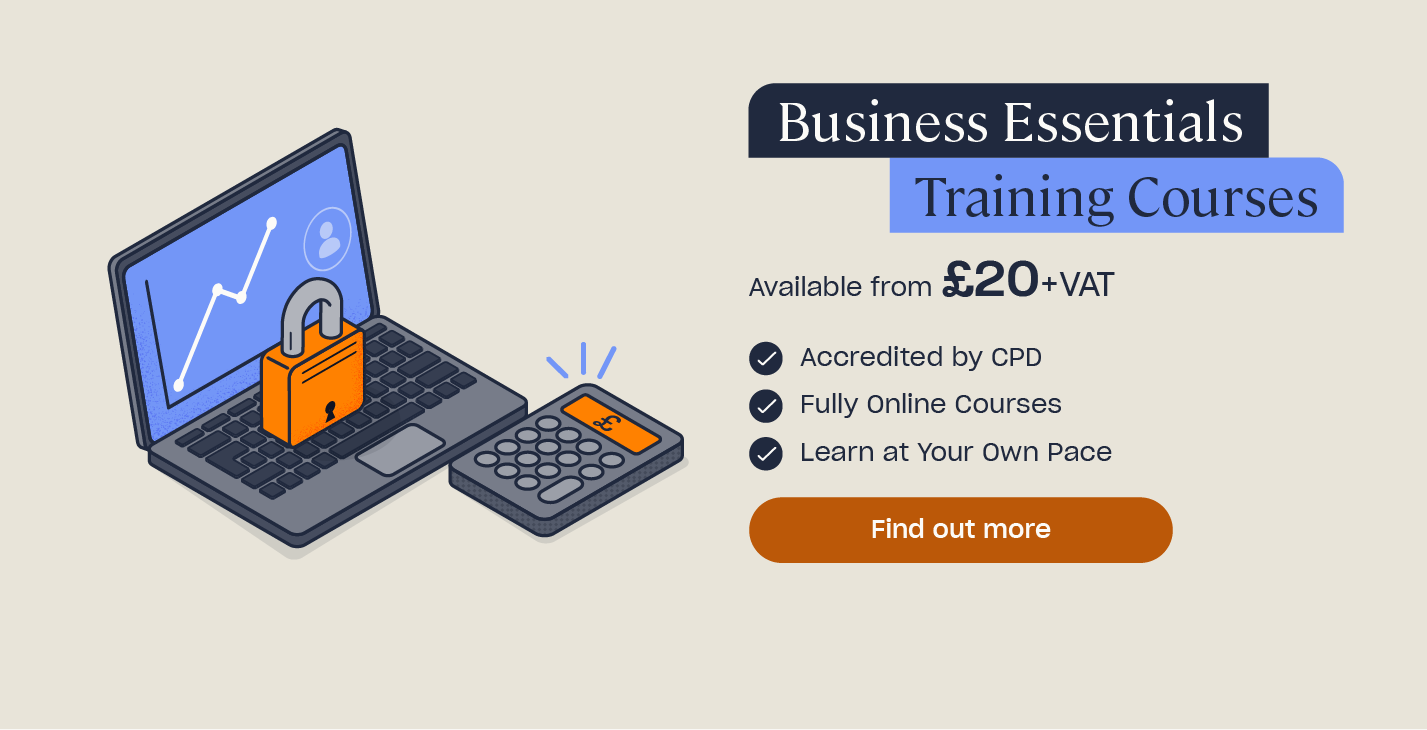Soft Skills in the Workplace
Soft skills are becoming an increasingly important part of the job selection process. When faced with two equally-qualified candidates, hiring managers need to look towards other attributes and qualities the person possesses that make them best suited for the role – these are your soft skills. In this article, we’ll help you understand what soft skills in the workplace are, why soft skills are important and name some of the most-desirable, top soft skills that employers look for.
What are Soft Skills in the Workplace?
Soft skills are sometimes referred to as interpersonal skills or people skills, and they’re the abilities you have that enable you to excel in a professional work setting. Soft skills are all of the attributes, qualities and personality traits you have in addition to the qualifications and certificates you hold.
Strong soft skills enable you to collaborate with teammates, manage your time well, communicate clearly, connect with others and navigate the workplace with ease and with success.
Soft skills in the workplace are non-technical skills, i.e. you don’t need them to be ‘qualified’ for a specific position. They are usually transferable skills that can be used in any work setting and any job role, so highlighting them on your CV is a must. Soft skills are also relevant at all job levels, whether you’re applying for your first job ad or are looking to climb the ladder as a top-level executive.
Anyone can develop soft skills: many of them you’ll already possess and some are ones that you’ll need to learn and improve on.

Importance of Soft Skills in the Workplace
Soft skills aren’t just essential for getting a new job; they’re also important in the workplace throughout your career. Success at work requires more than just a strong technical knowledge of the role – it also requires you to be adaptable, resilient, good at problem-solving and an excellent communicator, to name a few. These soft skills and personal qualities are the foundation for professional achievement.

Soft skills are important in the workplace because they:
- Increase your productivity and efficiency.
- Demonstrate your initiative and proactivity.
- Help improve the company culture.
- Create stronger professional relationships.
- Lead to more creative solutions.
Furthermore, people with strong soft skills have been proven to enjoy greater life satisfaction and can earn up to 12% more than their peers.
Top Soft Skills Employers Look For
Here are 20 highly-desirable soft skills that employers look for when hiring the right candidate:
- Adaptability – being able to change the way you think is an important soft skill to have, as it allows you to accommodate new ideas, change your method of communication or learn new ways of working without hesitation and without stress.
- Communication – communication skills include all types of communication methods, from verbal speaking skills, non-verbal communication and written words to digital communication, presentation skills and public speaking in the workplace. A good communicator is able to express their ideas and feelings clearly, as well as listen to and understand those of others.
- Conflict resolution – being able to respectfully and effectively solve a problem between people is a strong leadership soft skill to have. Those skilled in conflict resolution and conflict management can present solutions and options in a respectful way and will take into account everyone’s opinions and feelings.
- Creativity – alongside being creative in the traditional design sense, creativity at work is also a type of problem-solving and is about coming up with a variety of different solutions to all kinds of situations. A creative person is able to present ideas, innovate solutions and brainstorm with teammates.
- Critical thinking – critical thinking in the workplace refers to the ability to analyse information and come to an informed decision. Critical thinking skills are essential for managing risks, considering all outcomes and making educated choices. It’s also a type of problem-solving.
- Decision-making – having strong decision-making skills is particularly important for managers and leaders, as confident decisions are vital for the progression of a team or company. If you have good decision-making skills, then you’re able to choose the best course of action in order to achieve set goals.
- Dependability – dependability refers to your willingness and ability to follow through on what you’ve said you’ll do. It means being consistent and reliable, meeting deadlines, being punctual and helping others when they need you.
- Digital literacy – digital literacy in the workplace means being fluent in digital technology, including the internet, mobile devices, digital tools and computer software. In today’s world, where remote working and remote communication are so prevalent, digital literacy is an essential soft skill to have, not just a desirable one. Furthermore, as the technology used in the workplace is subject to constant change and upgrades, you must be able to adapt to new technology at the drop of a hat.
- Empathy and compassion – empathy and compassion are key components of emotional intelligence – the ability to recognise and understand your own and others’ emotions. Empathy and compassion are essential skills for encouraging teamwork, building strong relationships and giving feedback.
- Intercultural communication – intercultural communication in the workplace refers to your ability to effectively talk with people from different religious, social or ethnic backgrounds. Different cultures have different communication styles and this is something you’re particularly likely to encounter if you work remotely with people around the world. Strong intercultural communication skills help you to bridge the gaps between workers, improve inclusion and get the best out of everyone.
- Leadership qualities – leadership skills in the workplace are important if you want to inspire and influence others to achieve their goals. A good leader can set a vision, communicate the vision well to their teammates and encourage success. Other leadership qualities that are useful to possess are strong coaching and mentoring skills.
- Metacognitive skills – put simply, metacognition in the workplace is your ability to learn new work skills and is part of developing a growth mindset. A person with metacognitive skills is self-aware, recognises what they do and don’t know and can identify opportunities to learn. They understand their thought processes and know how best to take on board new information.
- Networking – being able to network well, whether it’s in-person or online, is a vital skill for developing your relationships and your career. Good networking skills enable you to build connections with others and proactively maintain business relationships.
- Organisation – organisation skills go hand-in-hand with time management skills, as both are needed to ensure reliability, punctuality and productivity. An organised person is able to keep a diary, prioritise tasks, manage deadlines and stay on top of work.
- Positive attitude – maintaining a professional attitude in the workplace and staying positive is important for being resilient in the face of challenges, interacting well with colleagues and staying motivated to work. Someone with a positive attitude is able to look for opportunities in difficult situations and doesn’t just give up.
- Problem-solving – problem-solving in the workplace means thinking outside of the box to come up with solutions to challenges. Good problem-solving skills will help you to analyse situations, research possible solutions and establish procedures to prevent issues from occurring again.
- Teamwork – teamwork skills in the workplace are vital for all types of job roles in all types of organisations. Being able to get along with others, communicate with people well and collaborate to achieve shared goals are essential soft skills to possess, and will show that you’re able and willing to support others, respect others’ ideas and contribute towards the team’s success.
- Time management – time management is an important soft skill for most workplaces and shows that you’re organised, disciplined and able to avoid distractions. People with good time management skills are more reliable and efficient workers.
- Work ethic – maintaining a strong work ethic in the workplace shows that you’re committed to the role and can be relied upon to get the job done. Someone with a good work ethic is consistent, accountable and adaptable and is always seen as professional.
- Writing skills – professional writing in the workplace is the ability to communicate effectively through the written word, whether it’s an email, marketing content or internal notification. Possessing strong writing skills means your content is free from spelling and grammar errors, is concise and readable and is understandable by the target audience.

How to Develop Soft Skills in the Workplace
It’s likely that you already possess many soft skills that you can highlight on your CV but, if there are ones you’ve identified as needing improvement, then you can work to develop your soft skills with time, dedication and an open mind. Everyone has the ability to learn new soft skills.
To develop your soft skills in the workplace, the best place to start is by looking at the list of skills above and determining which ones you want to work on. Then you can start your research into each specific skill and look at what you need to do to develop them.
In the workplace, a personal or professional development plan (PDP) can help you to identify the specific soft skills you want to develop. The articles below provide you with more information on creating a PDP:
- Writing A Professional Development Plan – Example & Template
- Personal Development Plan (PDP) – Guide & Template
- What are Personal Development Goals for Work?
Soft Skills Training in the Workplace
Your current workplace may offer training in specific soft skills, so be sure to take them up on the offer when it arises. Workplaces often run workshops in key topics such as presentation skills, time management and computer skills to help develop your knowledge and to ensure their workforce is skilled and competent.
Need a Training Course?
If you’re looking to take further training in soft skills and want to gain some all-important certificates for your CV, then take a look at our Business Essentials online training courses and see what you could learn today.
Soft skills in the workplace are essential for job seekers and current employees alike. Hiring managers actively look for soft skills on your CV and will prioritise those people who can demonstrate a range of personal qualities and attributes, alongside their professional qualifications.
Further Resources:
- Business Essentials landing page
- What Excel Skills are Employers Looking For?
- What is the Importance of Digital Skills in the Workplace?
- Transferable Skills: What Are They and Why Are They Important?
- Hard Skills in the Workplace











